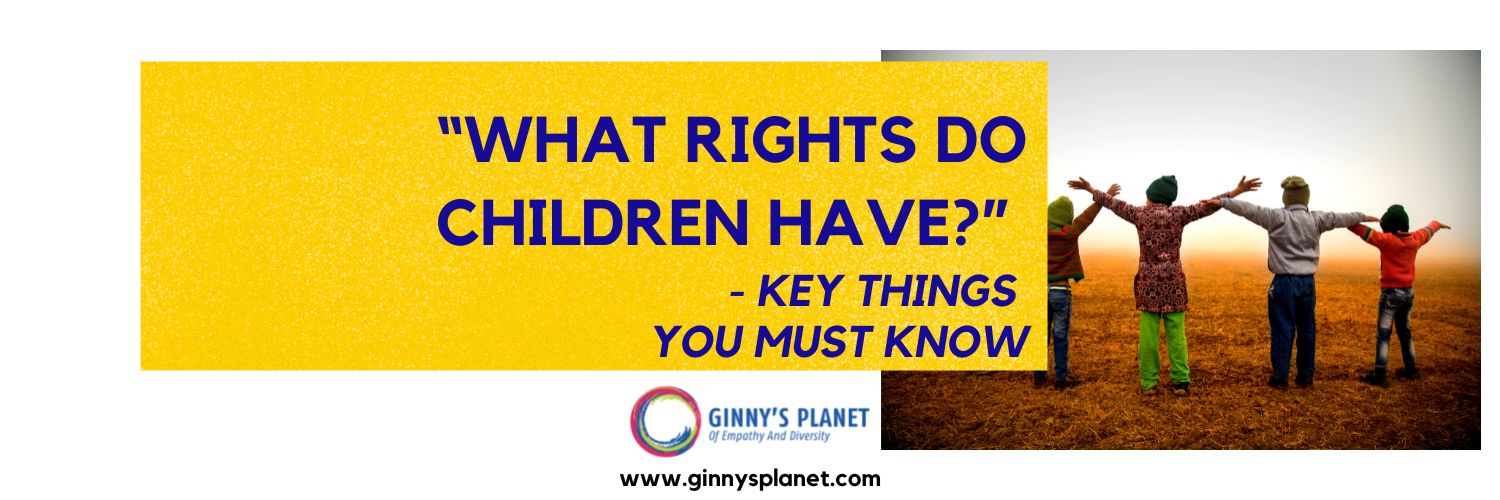
By: Bhoomi Jangid*
Children are people with rights. Children are not passive recipients of services and care. Let’s understand some key rights mentioned in the laws for children in India.
The UN Convention on the Rights of the Child talks about children’s right to survive, grow, express, participate, have non-discrimination, be protected, and so on. All these rights become available to children in India through what is enshrined in the Constitution of India as well as various policies, legislations, programs, and schemes.
All children have the right to
1. Have basic needs fulfilled in physical, mental, and emotional aspects This includes love, happiness, access to food, water, sanitation, and so on.
2. Move the body when needed.
3. Learn to take care of personal needs.
4. Learn and process emotions through play.
5. Learn through exploration, trial, and error.
6. Make mistakes and not be judged or shamed for them.
7. Learn at a personal pace.
8. Not be tested involuntarily. Instead, share knowledge by free choice, only when ready to receive feedback on learning progress.
9. Not be punished. Instead, children should be respectfully encouraged to become more self-disciplined.
10. Not be compared with peers. Instead, acknowledged themself as individual students with individual talents, opinions, and characteristics.
11. Not be judged for being different.
12. Be included and participate in their learning and life processes.
13. Be protected in online spaces as well as in physical spaces.
Key Rights And Laws For Children In India
1. Right To Education
Following the rights-based approach, Article 21-A in the Constitution of India and the Right to Education (RTE) Act came into effect on 1 April 2010. The title of the RTE Act incorporates the words ‘free and compulsory’. ‘Free education’ means that children are not liable to pay any kind of fee or charges or expenses that may prevent them from pursuing and completing elementary education. ‘Compulsory education’ means that Government and local authorities must ensure admission, attendance, and completion of elementary education by children who are 6-14 years old.
The RTE Act also prohibits physical punishment and mental harassment; screening procedures for admission of children; capitation fee; and running of schools without recognition. The law also focuses on the development of a child-centric curriculum that ensures the all-around development of the child.
2. The Juvenile Justice Act
In 2015, a new Juvenile Justice (JJ) Act was enacted by the Parliament of India. This legislation creates mechanisms for the protection of all children in need of care and protection in India. At the same time, it also focuses on children who are seen as breaking other laws. For children ‘in conflict with law’, the juvenile justice system looks at skill development, habilitation, rehabilitation, addressing treatment needs, and successful reintegration of youth into the community. All organizations running homes for children also need to be licensed and reviewed under this legislation.
3. Protection Of Children from Sexual Offences Act (POCSO) Act
This aims at protecting children from all types of sexual abuse. POCSO Act was passed by the parliament in the year 2012. Bullying or abuse on an online platform can also be reported under this act.
4. Protection and redressal in cases of cyber crimes
With increasing instances of online bullying and abuse, the Government has also launched an online portal to offer guidance, redressal, and support. You can access it HERE.
Meanwhile, if you are a parent or a guardian, you can also do the following to protect kids from online abuse:
1. Stay involved in a respectful way in their children’s digital world, know the apps they use, use parental controls where possible, and block and report people who make them feel uncomfortable.
2. Help children understand online abuse and safety.
3. Tell children to avoid sharing personal information, photos, and videos online in public forums or with people they do not know in real life.
4. Encourage children to tell a parent, guardian, or another trusted adult if anyone asks them to engage in sexual activity or other inappropriate behavior.
5. New National Policy on Education – This has brought the issue of holistic development of children again to the front. Some of the aspects in the new education policy are:
- PARAKH (Performance assessment, review, and analysis of knowledge for holistic development)- a new national assessment platform will be set up.
- Mathematical thinking and scientific temper coding will start in class 6
- Vocational education will start in school from 6th grade which also includes internships.
- Till grade 5th, emphasis will be on the local language/regional language/mother tongue as the medium of instruction.
- Focus on critical thinking, discovery, inquiry, discussion, and teaching based on analysis and holistic learning methods.
Conclusion
All children deserve equality and their differences should be accepted. They are entitled to all rights, no matter what color, religion, language, ethnicity, gender, or abilities define them.
About Ginny’s Planet:
Ginny’s Planet is a social enterprise Co-founded by Dr. Shweta Verma in 2019. The brand runs on the core value of helping our teachers and parents to teach their children to become independent, smart, and better leaders by equipping them with a deep understanding of empathy, diversity, disability, and inclusion. Dr. Shweta and the team design events, workshops, and products to help guardians & schools to develop kids’ mindsets and evolve as adaptive and flexible human beings. They work with schools to organize workshops for children and teachers.
*Bhoomi Jangid is an enthusiastic and open-minded person who is also a life-long learner. She was a Training Coordinator at Ginny’s Planet till Dec 2022. Bhoomi is a Yoga Trainer and has also completed a course in design.


Recent Comments